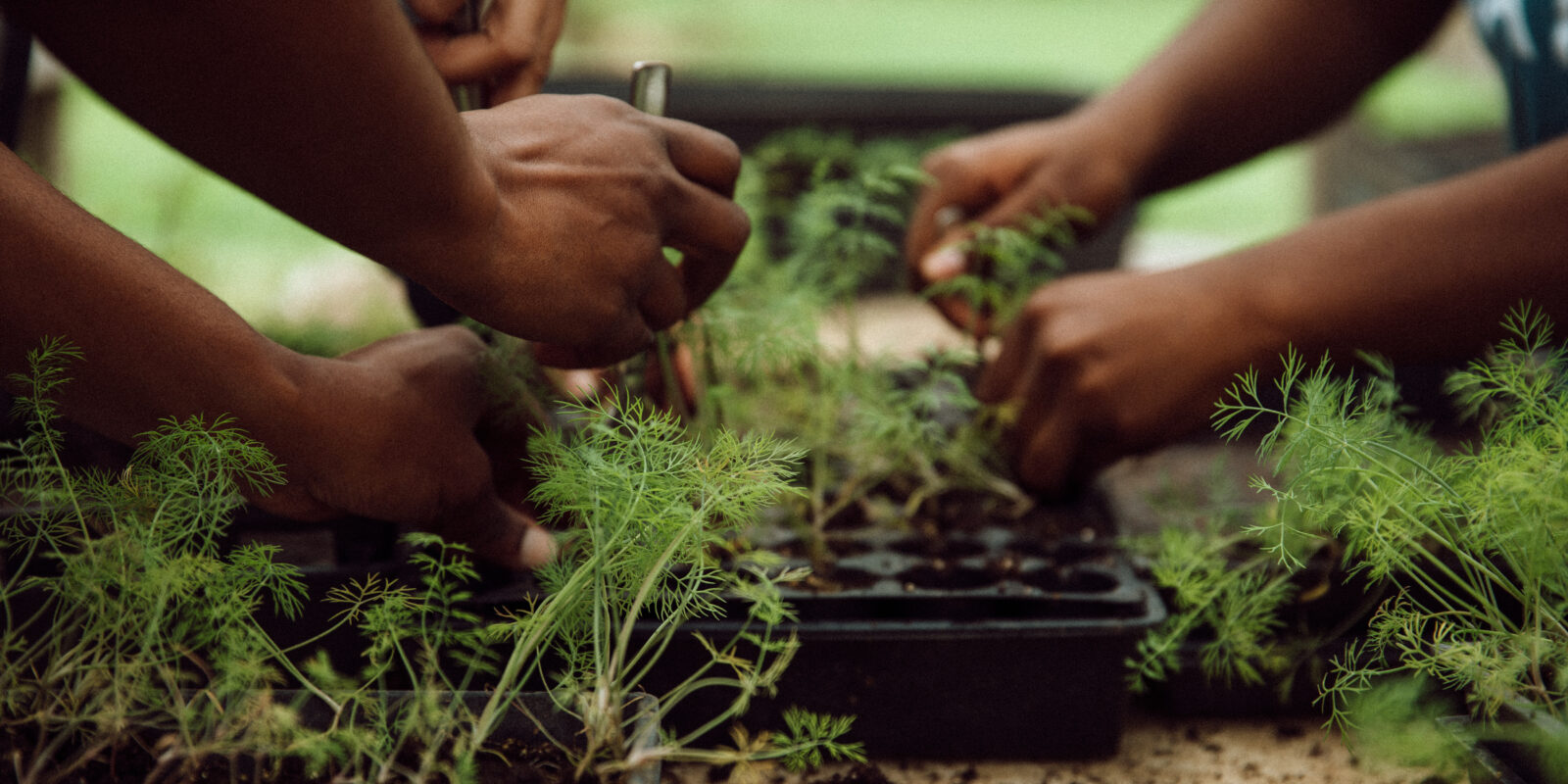In Brief
- Policy Equity Group and the National Farm to School Network recently published Lessons from the COVID-19 Experience, a report to examine the innovations and strategies for farm to early care and education implementation in U.S. states and communities.
- The COVID-19 pandemic laid bare the inequities in educational opportunities and vulnerabilities for our youngest learners and demonstrated the urgent need for action. More than 42 million people, including nearly 13 million children, may have experienced food insecurity. The inequities exposed in the food system demonstrate how current global and national food distribution models are not sustainable.
- Farm to early care and education programs aim to nourish our children and build a sustainable food system by procuring from local farmers who are growing healthy food.
- With support from the W.K. Kellogg Foundation, food and early care partner organizations in Georgia, Iowa, North Carolina, Pennsylvania and Wisconsin are working to increase access to local foods, hands-on gardening and food and agriculture education for children and families.
Why This Matters
While COVID-19 brought multiple challenges and heightened existing inequities in communities, it also brought extreme disruptions in food supply chains. For those engaged in farm to early care and education, it showed the value of the movement by shifting priorities and leveraging existing relationships with food and early childhood education implementation systems to meet the needs of farmers, families and early care and education providers.
Families who found themselves with children at home had a greater need for virtual learning strategies. Early childhood teachers working showed an increased readiness to engage in virtual farm to early care professional development opportunities. Many of these providers and families also expressed an increased interest in gardening and outdoor learning activities.
Similarly, farmers, food supply chain partners and consumers were more likely to use technology—many for the first time—to sell or purchase local food, giving rise to increased online procurement and its accompanying infrastructure in many states. These behavioral shifts, coupled with the increased flexibility of federal policy and programs, allowed many food and early care organizations to be innovative how they provide healthy, local food to young children in their states.
The Opportunity
This report revealed the correlation between COVID-19, food insecurity and education, and unleashed a wave of opportunities for farm to early childhood education programs. Here are some of the biggest lessons learned:
- When early childhood education sites closed due to state stay-at-home orders, farm to early care partners developed and delivered virtual training and distance-learning opportunities, which allowed online organizations to expand the reach of their farm to early care and education training and technical assistance resources.
- At the initial peak of shutdowns, gardening and outdoor learning emerged as a solution to challenges of adapting to COVID-19-related policies and restrictions for early care sites that remained open.
- Increased use of technology and online purchasing platforms was a solution to meet the needs of producers, food supply chain partners and consumers.
- Increased flexibility in federal programs allowed early childhood education systems and communities to meet the needs of families and communities during the COVID-19 crisis.








Comments